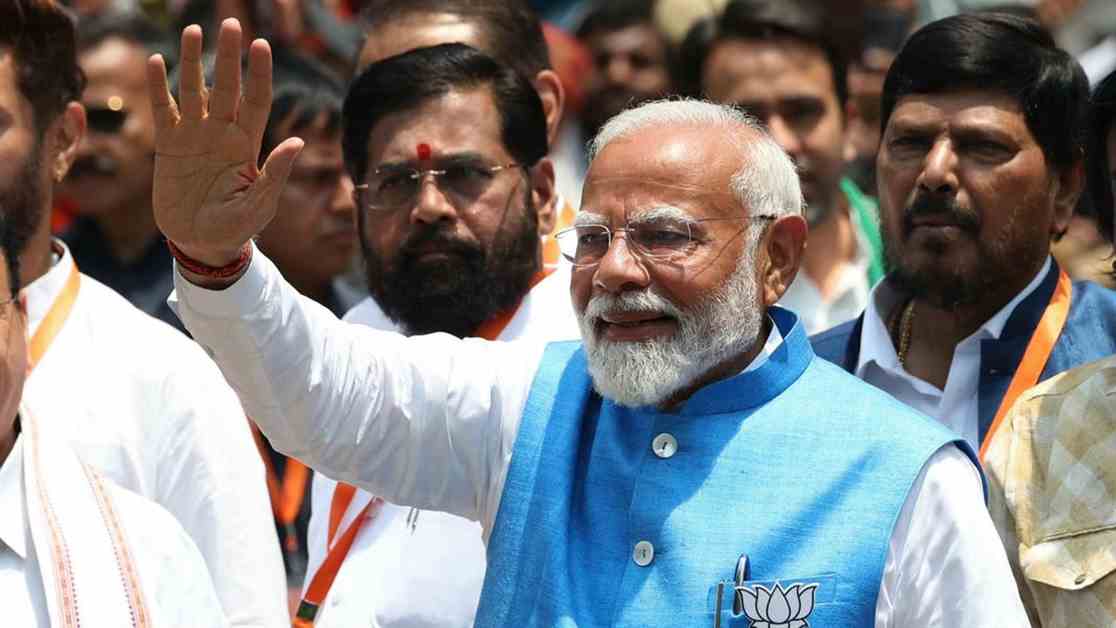Modi Claims 3rd Term Amid Controversial Comments: A Recap of the Indian Prime Minister’s Statements
Indian Prime Minister Narendra Modi secured a third consecutive term in power, leading his BJP party to a victory in the recent election cycle. However, Modi’s campaign was filled with controversial remarks that sparked criticism and backlash from the opposition.
During interviews and campaign speeches, Modi made several statements that raised eyebrows and fueled debates. From comments on Mahatma Gandhi to claims about his own birth and involvement in international conflicts, here are some of the most controversial remarks made by the Indian Prime Minister:
On Mahatma Gandhi: Modi stirred controversy by suggesting that Gandhi was not well-known outside of India until the release of a biopic in 1982. He pointed fingers at previous governments for not promoting Gandhi’s legacy on a global scale, despite the fact that influential figures like Nelson Mandela and Martin Luther King Jr. drew inspiration from Gandhi’s non-violent activism.
On his birth: In a surprising revelation, Modi claimed that he believed he was “born biologically” while his mother was alive, but later came to the conclusion that he was sent by a higher power after her passing. He expressed a strong belief in fulfilling a divine purpose and receiving energy beyond the capabilities of a biological body.
On the Gaza war: Modi disclosed that he had intervened in the Gaza conflict, urging Israeli Prime Minister Benjamin Netanyahu to refrain from bombing during Ramadan. While claiming that his efforts led to minimal fighting, critics pointed out discrepancies in his statements and likened them to misleading campaign tactics.
On the opposition snatching buffaloes: During a rally, Modi targeted the opposition’s proposed policies, alleging that they would confiscate people’s assets and belongings, including buffaloes and jewelry. His inflammatory remarks drew criticism and accusations of fear-mongering.
On India’s Muslims: Modi faced backlash for his comments insinuating that the Congress party would prioritize Muslims over other citizens in resource distribution. His remarks perpetuated Islamophobic narratives and sparked outrage among opposition leaders, resulting in legal complaints for hate speech.
As Modi celebrates his victory and prepares for a new term in office, his controversial statements continue to resonate in the political landscape of India. The Indian Prime Minister’s rhetoric has not only stirred debates but also highlighted the deep divides and tensions within the country’s society.
The election results have shown a shift in power dynamics, with Modi’s BJP-led alliance falling short of initial projections. Despite securing a majority, the outcome reflects a more divided electorate and challenges ahead for the ruling party.
With nearly 1 billion eligible voters participating in the election, the impact of Modi’s statements and campaign strategies remains a topic of intense scrutiny and discussion. As India navigates through this political transition, the controversies surrounding Modi’s remarks are likely to shape the future of the nation’s governance and public discourse.
